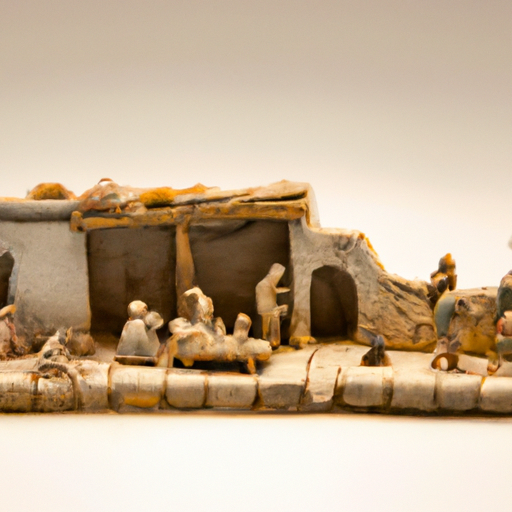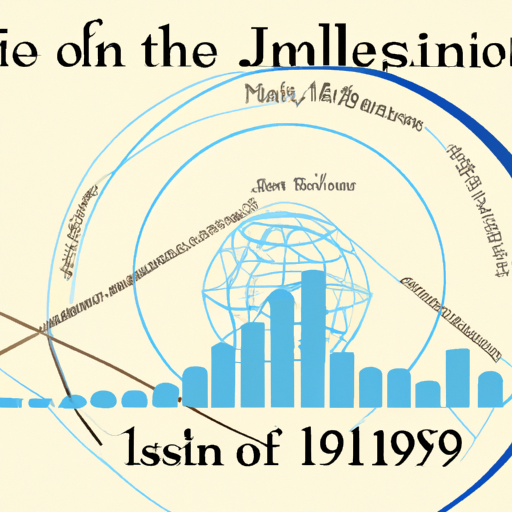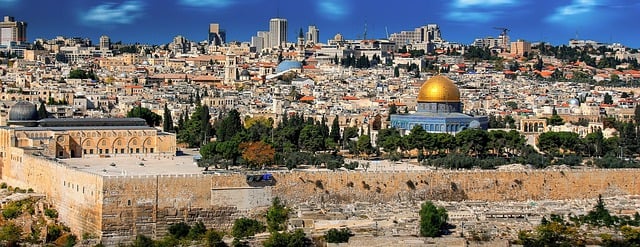This blog post delves into the rich and complex history of Israel, examining its roots from biblical times to the present day. We explore significant historical events, cultural influences, and remarkable people that have shaped this diverse and fascinating nation. Join us as we journey through time, discovering the layers that comprise the historical tapestry of Israel.
1. 'How did Israel come to be?' – The Origins and Ancient History of Israel
The origins and ancient history of Israel are deeply rooted in biblical narratives and archaeological evidence. According to the Hebrew Bible, Israel was established as a nation when the Hebrews, led by Moses, escaped from slavery in Egypt and entered the Promised Land. The period of the Judges followed, with various tribal leaders ruling the region. The kingdom of Israel reached its peak under the reigns of King Saul, King David, and King Solomon. These kings were known for their military prowess, expansion of territory, and building projects, such as Solomon's Temple in Jerusalem.
Archaeological findings support the biblical accounts and provide additional insights into the ancient history of Israel. Excavations have uncovered ancient cities, fortresses, and religious sites that date back thousands of years. For example, the ancient city of Jericho, believed to be one of the oldest inhabited cities in the world, reveals evidence of an early settlement in the region. The discovery of the Tel Dan Stele, a stone inscription mentioning the "House of David," provides further confirmation of the existence of King David.
The ancient history of Israel is also marked by periods of foreign rule and exile. In 586 BCE, the Babylonians conquered Jerusalem and destroyed Solomon's Temple. The Jewish people were exiled to Babylon, but later returned to rebuild their temple under the Persian rule. The region then fell under Hellenistic control after the conquests of Alexander the Great. This period saw the influence of Greek culture and the spread of Hellenistic cities throughout the country.

1. A depiction of ancient Israel during biblical times, showcasing the architecture and lifestyle of the period
2. 'The Land of Prophets and Kings' – Significant Figures in Israel's History
Throughout its rich history, Israel has been the land of prophets and kings, producing significant figures who have shaped its destiny. One such figure is Moses, who led the Hebrews out of Egyptian slavery and received the Ten Commandments on Mount Sinai. His leadership and guidance laid the foundation for the nation of Israel.
Another significant figure in Israel's history is King David, often regarded as one of the greatest kings of Israel. David's reign was marked by military victories and the establishment of Jerusalem as the capital city. He is also known for his musical talents and authorship of the Psalms, which have had a profound impact on Jewish and Christian religious traditions.
Moving forward in time, the prophet Isaiah played a pivotal role in shaping Israel's religious and moral identity. His prophecies, found in the Hebrew Bible, addressed the political and social challenges of his time while providing hope and guidance to the people of Israel. Isaiah's writings continue to be revered for their poetic beauty and profound spiritual insights.
Another significant figure in Israel's history is King Herod the Great. Despite his controversial reign and reputation for cruelty, Herod left a lasting architectural legacy. He undertook ambitious building projects, including the expansion of the Second Temple in Jerusalem, the construction of the Herodium fortress, and the creation of the port city of Caesarea.
3. 'From Diaspora to Statehood' – The Formation of Modern Israel
In the late 19th and early 20th centuries, a Zionist movement began to take shape, aiming to establish a homeland for the Jewish people. This movement gained momentum as Jews faced increasing persecution and discrimination in various parts of the world. The idea of returning to the land of their ancestors resonated deeply, and the longing for a Jewish homeland grew stronger.
The Balfour Declaration of 1917, issued by the British government, expressed support for the establishment of a national home for the Jewish people in Palestine. This declaration marked a significant milestone in the formation of modern Israel and generated hope among Jewish communities worldwide.
However, it was not until after the horrors of the Holocaust during World War II that the international community recognized the urgent need for a Jewish homeland. The United Nations proposed the partition of Palestine into separate Jewish and Arab states, which was accepted by Jewish leaders but rejected by Arab nations.
On May 14, 1948, the State of Israel was declared, and David Ben-Gurion became its first Prime Minister. This declaration was met with both celebration and conflict, as neighboring Arab countries refused to accept the new state and launched a military campaign against it.
Against all odds, Israel managed to defend itself and secure its independence. This marked a turning point in Jewish history, as the Jewish people finally had a sovereign state they could call their own. Since then, Israel has faced numerous challenges, including wars, regional conflicts, and ongoing peace negotiations. Yet, it has also flourished in various fields, becoming a center of innovation, technology, and culture.

3. A timeline graphic illustrating the journey from Jewish Diaspora to the establishment of modern Israel
4. 'One land, many cultures' – The Influence of Various Cultures on Israel
Israel is a melting pot of diverse cultures, shaped by centuries of migration, conquests, and interactions with neighboring civilizations. Each wave of settlers and conquerors brought with them their unique traditions, languages, and customs, contributing to the rich tapestry of Israeli culture.
From the ancient Egyptians and Canaanites to the Romans and Byzantines, the land of Israel has witnessed the rise and fall of numerous civilizations. These influences are evident in archaeological sites, religious practices, and architectural styles that dot the country. The remnants of ancient civilizations serve as a reminder of the cultural diversity that has shaped Israel's identity.
Judaism, Christianity, and Islam have deep historical roots in the region, and their respective traditions and beliefs have left an indelible mark on Israeli culture. The sacred sites of Jerusalem, such as the Western Wall, the Church of the Holy Sepulchre, and the Al-Aqsa Mosque, attract millions of pilgrims and tourists from around the world, further enriching the cultural fabric of Israel.
Moreover, Israel has been a haven for Jewish communities from different parts of the world, particularly those fleeing persecution and seeking refuge. As a result, Jewish immigrants have brought their own customs, languages, and cuisine, creating a vibrant mosaic of Jewish cultures within Israel.
In addition to the indigenous and Jewish influences, Israel has also been influenced by its Arab neighbors. Arab traditions and customs, including music, dance, and cuisine, have become an integral part of Israeli culture. The blending of these various cultures has given rise to a unique Israeli identity that embraces diversity and fosters a sense of unity among its citizens.
Israel's history is a captivating amalgamation of cultures, religions, conflicts, and triumphs. Despite its relatively small geographical size, the historical significance and impact of Israel cannot be overstated. As we have seen, its rich history has had a profound influence on its complex present. Understanding Israel's past is not just about studying history, but also about gaining insights into the current social, political, and religious dynamics that shape the world today.
Go on a tour to Israel to see al it's wonders.
חיפאי שכותב על חיפה, אבל לא רק…
כל הדעות הן אישיות בלבד, אין לראות באמור משום ייעוץ או המלצה לפעולה כלשהי 🙂



